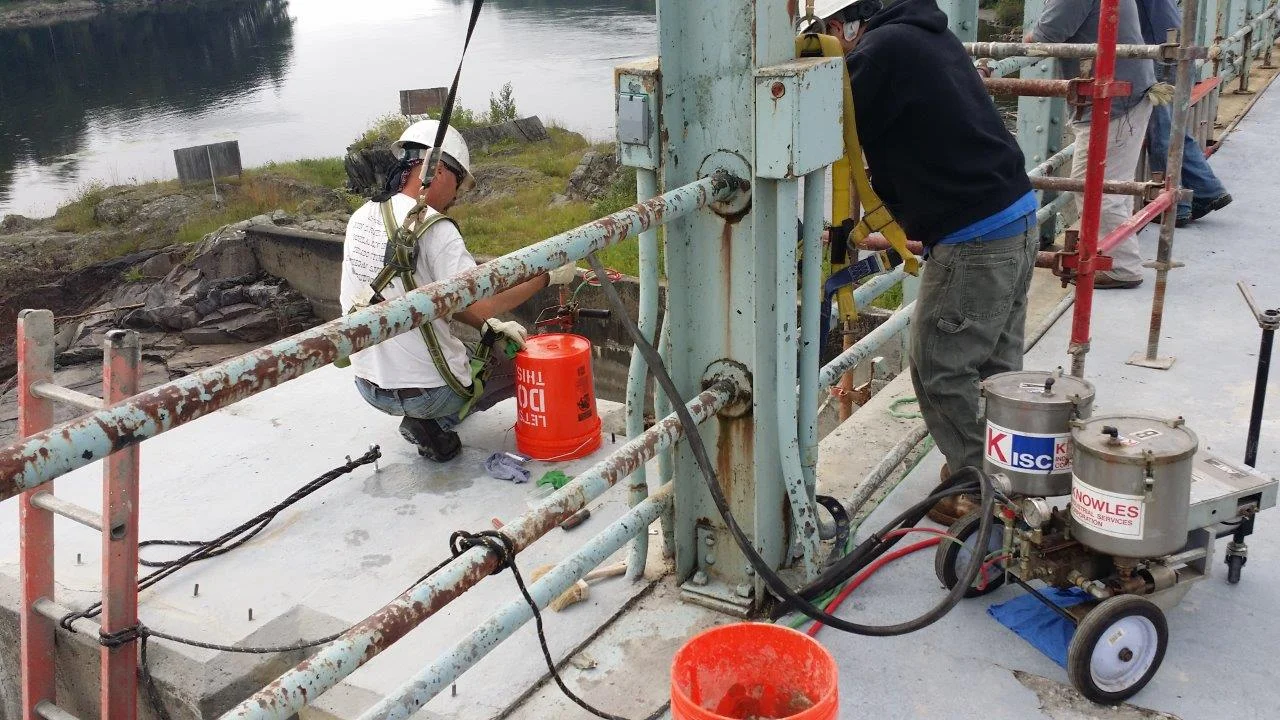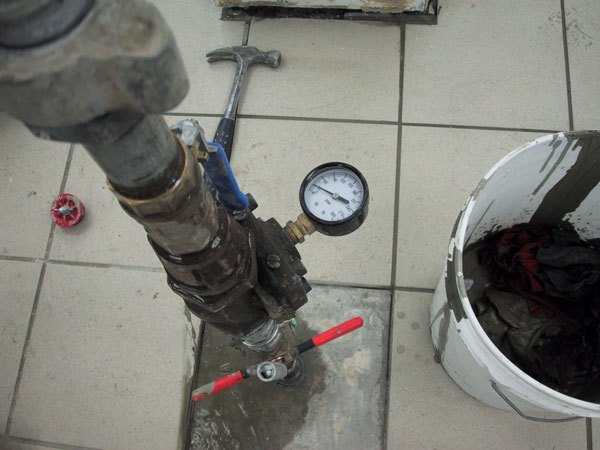The Right Application for Your Project
The term "pressure grouting" today covers a wide range of highly specialized procedure, materials, and equipment to address various defects in soils or structures. Knowles understands each of these technologies, knows how to choose the right application for your project, and has successfully performed all of them:
“Once again, Knowles has made Fluor Daniel look good! The Procter & Gamble group assure me they will call your company whenever pressure grouting or special tank linings are needed.”
Pressure Crack Injection
Pressure Crack Injection can be used to stop leaks, seal cracks and restore strength of cracked concrete. There are two types:
- Epoxy Crack Injection utilizes epoxy grout to structurally "weld" cracks to permanently restore the integrity of a structure. Once cured, the epoxy is stronger than the existing concrete, yet can be formulated to retain flexibility to compensate for future movement. Knowles introduced this technology to Northern New England in the late 1970's, and has more experience with it than anyone else in the region.
- Urethane Crack Injection is used to treat water leakage at joints or cracks. After injection into a joint or crack, the flexible urethane grout reacts with water and expands, creating a tight, permanent seal against water flow. Modified urethane grouts can also be used successfully to seal cracks or bond cracked surfaces together.
Slab Jacking, Settlement, Mitigation/Stabilization
Slab Jacking is the injection of grout under controlled pressure through a predetermined series of cored holes to lift a settled slab to a new desired location.
Penetration Grouting
Penetration Grouting is mainly used to fill joints or fractures in rock or large pore spaces in order to strengthen the existing mass and eliminate movement or water flow, without disturbing the formation. It requires a slurry mix design of water, Portland cement, fly ash, sand or any combination thereof.
Consolidation Grouting
Consolidation Grouting is the injection of a fluid grout, usually Portland cement and possibly sand, into a compressible soil mass in order to displace it and form a lenticular grout structure for support.
Chemical Grouting
- Structural chemical grouting is the pressurized permeation of sands and loose soils to provide sandstone-like masses to carry loads.
- Water control chemical grouting is the permeation of soils with fluid (chemical or cementitious) grouts to fill voids and control water flow.
Permeation Grouting
Permeation Grouting penetrates voids in a mass, replacing water or air between grain particles-at low pressure to prevent fracturing-then stiffens the mass as a whole. Chemical grouts or micro-fine cement grout, alone or in combination, work well for this method.
Compaction Grouting
Compaction Grouting involves the injection of a very stiff mortar-like grout that is designed to stay in a homogeneous mass, thereby displacing and compacting the existing soil mass.
Micropiles
Micropiles are small diameter piles that can be installed in almost any type of ground where piles are required, with design loads as small as 3 tons and as high as 500+ tons. Also known as mini-piles, needle piles or root piles, micropiles can offer a viable alternative to conventional piling techniques particularly in restricted access or low headroom situations.












